Heart disease remains a leading global health concern. Often, symptoms remain hidden for years, only surfacing when the condition escalates to a heart attack. Regular check-ups are crucial, especially for individuals with diabetes, high blood pressure, or those who are overweight. However, your body, particularly your skin, can also provide subtle clues beyond chest pain and breathlessness. Here are seven skin-related signs that could indicate underlying heart disease.
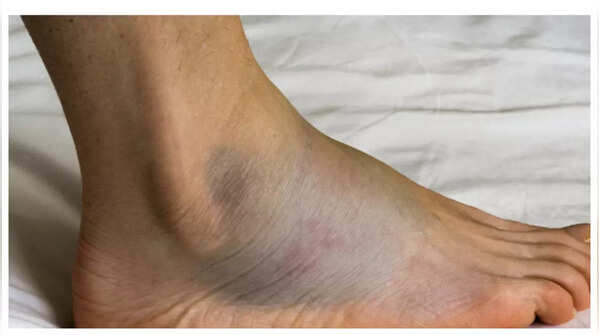
Swelling, especially in the feet, ankles, and lower legs, is a common sign of heart disease. This occurs when the heart's pumping efficiency declines, leading to fluid accumulation in tissues. You might notice tighter shoes or indentations on your skin after wearing socks. In severe cases, swelling can extend to the upper legs and groin. Consult a doctor if this swelling is accompanied by fatigue or shortness of breath.
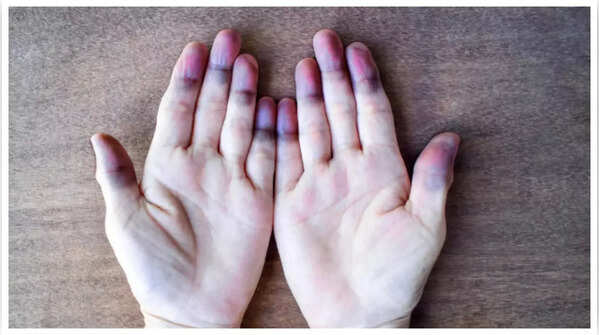
If your fingers or toes turn blue or purple and don't return to their normal color after warming, it could indicate insufficient oxygen in your blood due to a struggling heart. This condition, known as cyanosis, often points to blood vessel blockage or impaired heart function. Prompt medical attention is essential, as oxygen deprivation can harm skin and tissues.
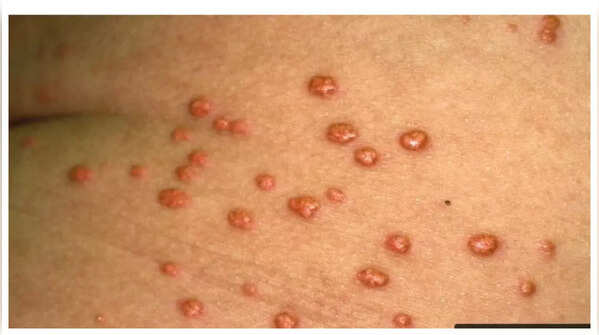
Yellow or orange, waxy bumps or plaques on your skin, particularly around the eyes, elbows, knees, or legs, indicate fatty deposits from high cholesterol or triglyceride levels. While painless, these bumps are significant warnings of potentially dangerous cholesterol levels, increasing your risk of heart disease. Monitor and manage your cholesterol if you observe these signs.
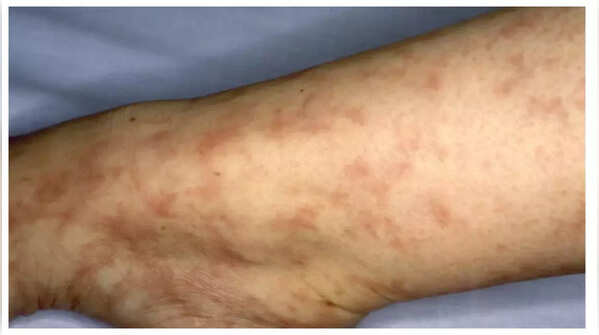
A web-like purple or blue pattern on your skin, especially on your legs, may indicate cholesterol embolization syndrome. This occurs when small arteries are blocked by cholesterol crystals, reducing blood flow. This pattern, distinct from a rash or infection, requires immediate medical consultation due to its association with serious heart conditions.
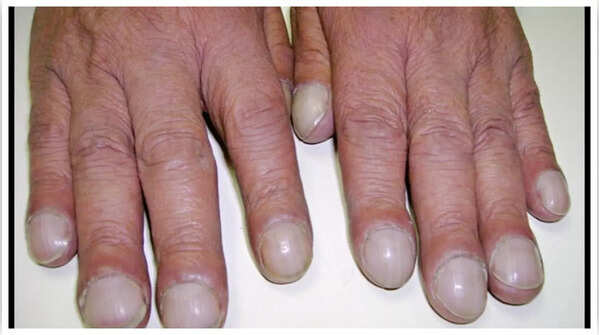
Clubbing, characterized by the rounding and swelling of finger or toe tips, causing nails to appear bulbous or curved downward, can signal low blood oxygen levels. Often linked to heart or lung diseases, changes in nail shape warrant a medical checkup.
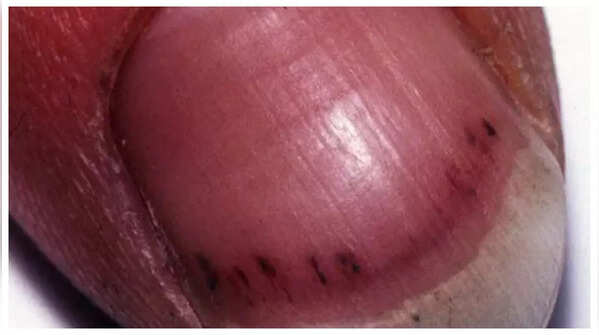
Tiny red or purple lines resembling splinters under your nails can indicate damaged blood vessels. These lines may be a sign of infective endocarditis, a serious heart infection. Persistent lines, especially with accompanying symptoms like fever or fatigue, should not be ignored.
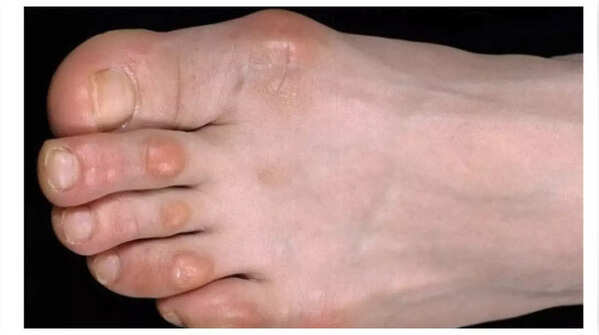
Painful, red or purple lumps on your fingers or toes, known as Osler nodes, can indicate a heart infection or other heart problems. These lumps may appear and disappear, lasting hours or days. Seek prompt medical advice if you notice such painful bumps.
Sources The American Academy of Dermatology Mohs Dermatology
Disclaimer: This article is for informational purposes only and does not substitute professional medical advice. Always consult a healthcare provider for any health concerns.
Newer articles
Older articles
 Vijay Officially Named TVK's Chief Minister Hopeful for Tamil Nadu's 2026 Election
Vijay Officially Named TVK's Chief Minister Hopeful for Tamil Nadu's 2026 Election
 RJ Mahvash Prioritizes Work Over Buzz, Addresses Link-Up Speculation
RJ Mahvash Prioritizes Work Over Buzz, Addresses Link-Up Speculation
 UNESCO's World Heritage Wonders: Unveiling 10 Iconic Sites, From Petra to the Pyramids
UNESCO's World Heritage Wonders: Unveiling 10 Iconic Sites, From Petra to the Pyramids
 JPG to PDF: A Comprehensive Guide for Graphic Designers & Professionals
JPG to PDF: A Comprehensive Guide for Graphic Designers & Professionals
 iQoo Z9 Turbo: Rumored Specs Emerge – Snapdragon 8s Gen 3, 6000mAh Battery Highlighted
iQoo Z9 Turbo: Rumored Specs Emerge – Snapdragon 8s Gen 3, 6000mAh Battery Highlighted
 Shadman Islam Defends Bangladesh Batters After Day 1 Struggles Against Sri Lanka
Shadman Islam Defends Bangladesh Batters After Day 1 Struggles Against Sri Lanka
 England's Bold Claim: Could They Have Chased Down 450 Against India?
England's Bold Claim: Could They Have Chased Down 450 Against India?
 5 Often-Missed Warning Signs of Bladder Cancer You Need to Know
5 Often-Missed Warning Signs of Bladder Cancer You Need to Know
 KL Rahul Puts Country First, Prioritizes England Tests Over Newborn Child
KL Rahul Puts Country First, Prioritizes England Tests Over Newborn Child
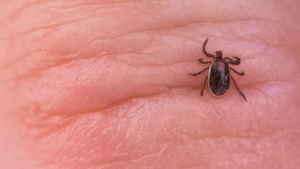 Tick Bite Paralyzes Fitness Influencer: A Wake-Up Call for Outdoor Enthusiasts
Tick Bite Paralyzes Fitness Influencer: A Wake-Up Call for Outdoor Enthusiasts